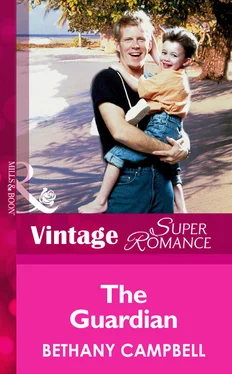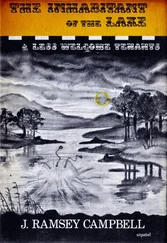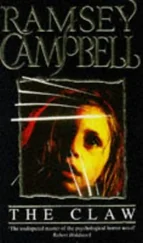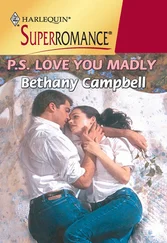And there was her former boss, the bookstore owner, Winston McPhee. McPhee was a kind, fatherly man who’d promised he’d take her back when it could be done. But the stalker had made McPhee’s life hellish with jealous calls day and night, and he’d disrupted the business until Kate knew she had to leave.
“Your father-in-law,” Hawkshaw said. “Your brother-in-law. Your former employer. Corbett’s checked them out. And they seem clean?”
“Yes,” she said, ashamed because at one time she’d suspected each of them. But she had come to look on every man she met with suspicion these days. It was a tense, terrible way to live.
“Corbett says it could be somebody I don’t know at all,” she said. “Or somebody I’ve known for years.”
Her gaze drifted to the picnic table. The breeze rustled the papers in a file folder that lay open next to a black ball cap.
With an unpleasant shock, she recognized the top page—a copy of one of the stalker’s notes. She knew those hideous notes by heart.
This one said,
I SAW YOU TODAY. YOU WERE WEARING YOUR GREEN PANTSUIT AND BLACK JACKET. IN MY MIND I TOOK OFF YOUR CLOTHES. I WANTED YOU SO MUCH IT WAS LIKE POISON IN MY VEINS. I IMAGINED YOU NAKED AND KNEELING BEFORE ME. THIS IS WHAT YOU DID—
She realized that Hawkshaw had read these filthy notes, and her face blazed with shame. Hastily she rose from the bench.
“I’d better go see about Charlie,” she said. “If he wakes up in a strange room...”
“If he wakes up in a strange room, what?”
“He’ll be upset. Charlie has—a few problems. He has an attention deficiency.”
She nodded, rather bitterly, toward the papers on the table. “Corbett seems to have told you everything else. Didn’t he tell you that?”
“It’s no big deal.”
“Maybe not to you,” she said defensively. “But it makes it harder for him to adjust to change than it is for most children. He doesn’t understand any of this—”
Hawkshaw shrugged one shoulder, as if what she said didn’t matter. “He’ll have breathing space here.”
He obviously didn’t understand, didn’t want to. “Listen,” she said, her voice brittle, “I’m not asking any favors for myself. But you might show a little sympathy for Charlie. He’s only a child, he has special needs, this is a horrible situation.”
“I happen,” he said coolly, “to be rather good with kids.”
I’ll bet, she thought. I’ll just bet.
The breeze tossed Hawkshaw’s hair, flapped the worn cloth of his shorts. He crossed his arms across his chest. He tilted his head in the direction of the stalker’s notes.
“Katherine,” he said, “you think I haven’t seen letters like that before? I have. Plenty of them. You can stop blushing.”
She didn’t want to hear more. She turned and took refuge in the quiet of his strange, disordered house.
CHARLIE’S EYES FLUSTERED open, struggled to focus. Mama leaned over him, smiling. An instant uneasiness swept over him.
These days Mama’s smile was different than it used to be, it no longer seemed real or alive. The smile was like a mask. Charlie could not explain this, he only knew it was true.
“We’re here, Charlie,” Mama said. Her voice was cheerful, but her eyes weren’t. “We’re in Florida. We got here last night. You were asleep—”
Charlie sat up, frowning and rubbing his eyes. She had told him yesterday they had to go to Florida, she had showed him meaningless shapes on a map, she had said a lot of words. Now she was saying them again.
You’re in Florida.
Florida seemed to be a room that was little and not very nice and smelled funny. He didn’t like it. He wanted to go home.
He rubbed his eyes harder, till he saw colored sparks whirl and swoop across his vision. Then he stopped. Warily he opened his eyes again.
Florida was still there, the whole room of it. And the scary thing about Florida was that it was different from all he knew. His bed was not really his bed. The walls were not his walls, the window not his window.
“This house belongs to a man named Mr. Hawkshaw,” Mama said. “Mr. Hawkshaw’s a friend of Mr. Corbett. You remember Mr. Corbett? He drove us to the airport—”
The mask of Mama’s bright smile made Charlie feel something was badly wrong. Her words beat against his ears the way moths beat against a screen at night. Like moths, the words wanted in, but they couldn’t get in.
Charlie stared at the curtains as if hypnotized. They were not his real curtains with the pictures of the Star Wars people on them. These curtains were ugly-brown with blue-and-white fishes on them. The fishes had little blue dots for eyes.
Mama was still talking, her words softly going bat, bat, bat. She had him up, leading him to a bathroom that was not his real bathroom. Her words couldn’t get inside his head. He was too busy looking at all the different things, all the wrong things, all the Florida things, in this bathroom.
The wallpaper was enough to make him dizzy. There were more fishes on it, silly pink-and-yellow fish on a watery green background. He felt as if he were underwater, that Florida had turned him into a fish-boy.
“Hello,” he called in his mind to the other fish. “Hello, I’m a boy who’s trapped here. How do I get back home?”
“Swim, you must swim very hard,” said a pale-yellow fish. “You must swim with all your might. ”
“Charlie, stand still!” Mama ordered. “Just brush your teeth.”
“I’m swimming home,” Charlie said around his toothbrush. His arms made wild windmill motions, as if he were swimming at a heroic pace.
He imagined he was friends with all the fish. He began to sing “Under the Sea.” He imagined himself singing and dancing with all the fish and a big red lobster and pretty little mermaids.
His mother told him to quiet down, but her words were only more moths flying airily around his head. “Under the sea,” he sang and did a fancy fish-dance step. “Under the se-e-a—”
Mama said something about breakfast. She pulled a clean shirt down over his head.
Help! thought Charlie. I can’t see! I can’t breathe! Mama’s a sea witch! She’s put me in a bag!
But he sputtered out of the neck hole of his shirt, safe again. “To the kitchen—” said Mama, opening the door into a hallway. From the first look, he didn’t like this hallway. It was long and narrow and different—it was more of nasty Florida.
But fat old Maybelline was up now, and she wanted out. She waddled down the hallway, her short regs chugging, her ears nearly trailing on the ground.
Charlie the fish-boy swam behind her, his arms churning again. “Glub,” he said. “Glub-glub.” He pretended Maybelline was a squid and that he was following her.
Then he was out of the sea and into a living room, and wow, it wasn’t his living room, it was really different—not all neat like Mama kept their place, and there was stuff everywhere!
He stopped to gape. His mind spun, trying to take it all in as his eyes danced from one object to another. Such a wealth of things! A cascade of things—fishing poles, a net with a handle, a tackle box, an oar, hooks, bobbers, flies, weights, a hundred things that he had no names for.
“Cool!” Charlie breathed. He felt dizzy with wonder. He looked up at a big fish stuffed and mounted on a wall. Was it a shark? It was, it was a shark, he was sure of it—what a paradise of stuff.
“Way cool!”
He reached toward a fishing pole, the biggest fishing pole he’d ever seen. Surely such a pole was used to catch whales!
“Charlie, don’t,” his mother warned, pulling his hand back. “That’s Mr. Hawkshaw’s. Come on. Let’s take Maybelline outside. Then we’ll find some breakfast.”
Читать дальше












